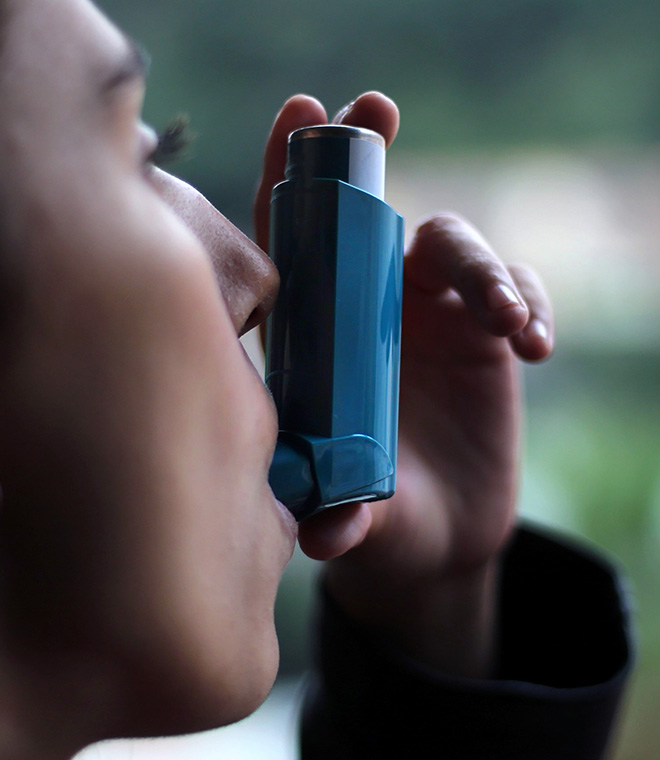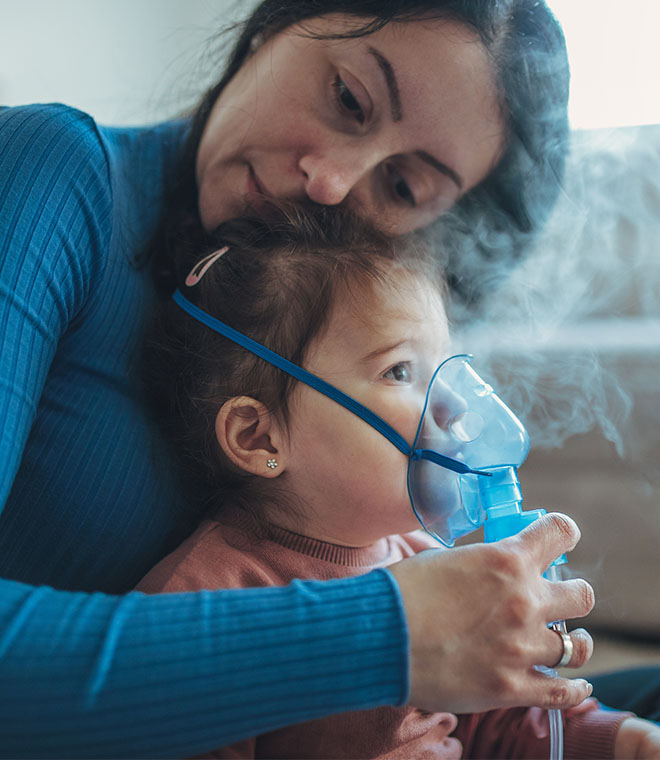Health
Asthma in children
By Andy Stergachis, PhD, BPharm Feb 23, 2021 • 4 min
Asthma is a chronic disease affecting the airways of the lungs.
Asthma is one of the most common chronic diseases of childhood, affecting more than 5.5 million, or 7.5% of children under the age of 18 years. The U.S. Centers for Disease Control and Prevention estimates that about half of children with current asthma have uncontrolled asthma. Poorly controlled asthma increases a child’s risk of emergency department visits and hospitalization. Poorly controlled asthma may also increase school absences, affecting academic performance and causing parents to miss work to care for an ill child.
Fortunately, asthma can be controlled with proper treatment. There are several things that you can do to help manage your child's asthma. These include learning about asthma, understanding how and when to give medications, when to seek emergency help and avoiding asthma triggers.
Does my child have asthma?
Sometimes it can be hard to recognize asthma symptoms, especially in young children. While children with asthma may show the same symptoms as adults with asthma, some children may not have a wheezing sound when breathing out. Coughing is one of the most common symptoms of asthma in children. Coughing at night or coughing that is triggered by exercise or cold air may be a sign of asthma. Another common symptom of childhood asthma is bouts of coughing that worsen with a cold or the flu. If your child has these signs and symptoms or you think they might have asthma, talk with your healthcare provider. Asthma is typically diagnosed through a medical exam and a test that measures airflow in and out of the lungs.
Treatments for children with asthma
As with adults, the goals of asthma management for children include keeping symptoms under control and minimizing side effects from medications. The choice of treatment depends on the severity and frequency of their symptoms. Healthcare providers also consider other factors, such as the child’s age, when prescribing the type and duration of treatment. This means that not every child with asthma takes the same medicine. Most asthma medicines are given with a nebulizer or inhaler that allows a child to breathe medication directly into the lungs. The two general classes of asthma medicines are quick-relief medicines and long-term control medicines.
- Quick-relief medications. Also called rescue medications, quick-relief medications provide immediate relief of asthma symptoms. Although these medications work quickly, they can't keep your child's symptoms from coming back. If your child is using a quick-relief medication often, tell your healthcare provider. Frequent use of a quick-relief medication for symptom relief may indicate inadequate control of asthma and require treatment changes.
- Long-term control medications. Taken regularly, long-term control medications (also called maintenance medications) can help achieve and maintain control of persistent asthma. Long-term control medicines reduce the inflammation of the airways to prevent asthma symptoms and attacks.
Follow an asthma action plan
Your child’s doctor can help provide a written asthma action plan, which should include medicines to take based on symptoms and what to do when your child's asthma becomes worse. It should also help you determine when your child’s asthma is under control, when you need to change medicines and when immediate emergency help is needed. By carefully following a written treatment plan, you can help keep your child’s asthma well-controlled.
Andy Stergachis is a professor of pharmacy & global health at the University of Washington.
Published February 2021.
Sources:
1. https://www.cdc.gov/nchs/fastats/asthma.htm
2. https://www.cdc.gov/asthma/most_recent_national_asthma_data.htm
3. https://www.cdc.gov/asthma/asthma_stats/uncontrolled-asthma-children.htm
4. https://www.cdc.gov/asthma/asthma_stats/missing_days.htm
5. https://www.mayoclinic.org/diseases-conditions/childhood-asthma/symptoms-causes/syc-20351507
6. https://www.aaaai.org/conditions-and-treatments/library/asthma-library/childhood-asthma
7. https://acaai.org/asthma/asthma-101/asthma-in-children
8. https://www.uptodate.com/contents/asthma-treatment-in-children-beyond-the-basics
9. https://www.mayoclinic.org/diseases-conditions/asthma/in-depth/asthma-medications/art-20045557



